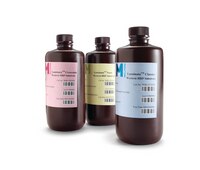The isoprenoid perillyl alcohol inhibits telomerase activity in prostate cancer cells.
Sundin, Tabetha, et al.
Biochimie, (2012)
2011
Zobrazit abstrakt
Isoprenoids are recognized for their ability to suppress carcinogenic processes in vivo and in vitro. We previously established that the isoprenoid, perillyl alcohol, acted mechanistically on translation of specific proteins through modulation of mechanistic target of rapamycin (mTOR) signaling. Telomerase-the enzyme responsible for immortalizing cells through the addition of telomeric repeats-is de-repressed early in an aspiring cancer cell. Here the effects of biologically-relevant concentrations and short incubations (1-16 h) of perillyl alcohol or the mTOR inhibitor, rapamycin, on telomerase activity were examined in prostate cancer cell lines. A rapid suppression of telomerase activity was observed (from ∼65% to >95%) determined by real-time quantitative telomerase repeat amplification protocol and confirmed by polyacrylamide gel-analysis. Using real-time reverse transcriptase-PCR, we demonstrated that human telomerase reverse transcriptase (hTERT) mRNA levels were unaltered. Western blot analysis revealed that hTERT protein levels decreased in response to perillyl alcohol or rapamycin. This decrease was partially blocked by pretreatment with a proteasome inhibitor MG-132, indicating that proteasomal degradation contributed to the loss of hTERT protein. No change in hTERT phosphorylation at Ser824 was observed, indicating the absence of cellular hTERT protein redistribution. These findings provide evidence for a unique link between nutrient- and macrolide-mediated regulation of mTOR and hTERT, a key enzyme that regulates DNA structure and stability. | 22902867
 |








